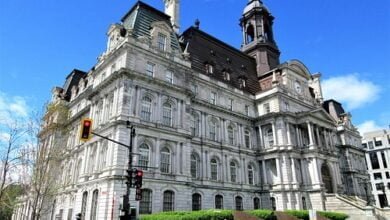
The Quebec government’s refusal to accept its own English language proficiency certificate has been a subject of criticism and debate that has captured the attention of the province and beyond. This contentious issue highlights the intricacies of language policies and their implications on individuals and communities. In this comprehensive analysis, we will delve deeper into the historical context of language in Quebec, explore the impact of language policies on society, and discuss the complexities of bilingualism in a globalized world.
To understand the present-day language dynamics in Quebec, we must delve into the province’s unique historical background. Quebec is distinguished by its Francophone heritage and cultural identity, shaped by centuries of French colonization. French is enshrined as the official language of the province, and the majority of Quebec’s population identifies as Francophone.
Language preservation in Quebec has been a central concern for generations, driven by the desire to safeguard the French language and culture amidst pressures from the English-speaking world and the rest of Canada. This commitment to linguistic identity culminated in the passing of Bill 101, also known as the Charter of the French Language, in 1977.
Bill 101 was a landmark piece of legislation that aimed to assert and reinforce the primacy of the French language in Quebec. The law mandated the use of French as the language of education, government, and business, among other domains. It required that children of non-Francophone immigrants attend French-language schools, limiting access to English-language education.
The implementation of Bill 101 faced resistance and controversy, particularly from English-speaking communities in Quebec and outside the province. Critics argued that the law infringed upon linguistic rights, as it imposed restrictions on the use of English in various contexts. Legal challenges and debates ensued, and the Supreme Court of Canada eventually upheld some provisions while striking down others.
Bill 101’s success in preserving and promoting the French language is evident in the fact that French remains the dominant language in Quebec today. However, the law has not been without its challenges and criticisms. Some argue that it restricts the rights of English-speaking Quebecers and limits access to English-language services, creating tensions between linguistic communities.
Over the years, Quebec’s language policies have adapted to the changing realities of a globalized world. Bilingualism has emerged as an essential skill for individuals seeking opportunities in international markets and organizations. As a result, the Quebec government has recognized the value of English proficiency and the need to prepare its residents for a multilingual world.
Efforts to promote bilingualism have been evident in educational institutions, where English language instruction has been integrated into the curriculum. Quebec recognizes that being proficient in both official languages can open doors to employment opportunities and foster cross-cultural understanding.
However, despite the recognition of bilingualism, the controversy surrounding the refusal to accept the Quebec government’s own English language proficiency certificate persists. This highlights the complexity of language policies and the challenges in striking the right balance between language preservation and embracing linguistic diversity.
In today’s interconnected world, English has emerged as the lingua franca of business, science, technology, and international diplomacy. Proficiency in English can provide individuals and communities with a competitive edge in the global job market and facilitate communication across borders. In this context, English proficiency is not only seen as a practical skill but also as a means of promoting economic growth and fostering innovation.
For Quebec, being bilingual offers advantages in engaging with international markets, attracting foreign investment, and participating in global initiatives. Embracing bilingualism can also enhance Quebec’s attractiveness as a destination for international students, researchers, and professionals.
Recognizing English language proficiency can thus be seen as a strategic move that aligns with the province’s broader economic and cultural aspirations. However, this recognition must be balanced with the preservation of Quebec’s linguistic identity and the promotion of French as the primary language of communication and cultural expression.
Language is an integral aspect of individual and collective identity. For many Quebecers, the French language is not merely a means of communication but a cornerstone of their cultural heritage. The promotion of French is often viewed as essential for safeguarding the province’s distinct identity within the larger Canadian and global contexts.
Preserving the French language is also intertwined with the pursuit of social cohesion and inclusivity within Quebec’s diverse population. Language policies that prioritize French aim to foster a shared sense of belonging among Francophones and non-Francophones alike.
However, it is crucial to recognize that promoting French does not necessarily mean disregarding or undermining English or other languages. Embracing linguistic diversity can enhance social cohesion and create a more inclusive society that values and celebrates cultural differences.
Language rights are fundamental human rights that play a vital role in shaping individuals’ access to education, employment, and public services. In Quebec, the language rights of both Francophones and Anglophones are protected by law, and the balance between these rights can be challenging to maintain.
Anglophone communities in Quebec have advocated for the protection of their language rights and cultural distinctiveness. They argue that access to English-language education and services is essential for preserving their heritage and ensuring their full participation in Quebec society.
On the other hand, Francophones are concerned about the potential erosion of their linguistic identity, particularly in regions with significant Anglophone populations. Striking a balance between the rights of different linguistic communities is an ongoing challenge for policymakers and lawmakers.
Education plays a critical role in fostering bilingualism and promoting language skills among Quebec’s population. By offering high-quality language instruction in both French and English, schools can equip students with the tools they need to navigate a multilingual world.
Furthermore, access to language education is crucial for newcomers to Quebec, many of whom may be bilingual or multilingual. Integrating English language instruction into schools can help these individuals develop their language skills, contribute to the province’s economy, and feel more welcomed in their new home.
Education should also emphasize the importance of cultural understanding and empathy. By teaching students about the historical and cultural significance of both French and English in Quebec, schools can promote mutual respect and appreciation for linguistic diversity.
As Quebec navigates the complexities of language policies, it faces both challenges and opportunities. On one hand, the province must continue to preserve and promote the French language to safeguard its cultural heritage and ensure that it remains a vibrant and integral part of Quebecois identity.
On the other hand, Quebec can capitalize on its bilingualism and multiculturalism to become a hub for innovation and international collaboration. Embracing linguistic diversity can open doors to economic growth, trade opportunities, and partnerships with international organizations.
To address the ongoing debate over the refusal to accept its own English language proficiency certificate, the Quebec government could explore potential solutions that strike a balance between language preservation and embracing bilingualism. This might involve recognizing the importance of English proficiency while ensuring that French remains the primary language of communication and governance.
In conclusion, the Quebec government’s refusal to accept its own English language proficiency certificate has sparked critical debates over language rights and policies in the province. The issue has shed light on the complexities of balancing language preservation with the recognition of the practical importance of English in a globalized world.
Quebec’s language landscape is deeply intertwined with its historical and cultural identity. The province’s commitment to preserving the French language has resulted in language policies such as Bill 101, which aim to assert the prim
While bilingualism is increasingly recognized as a valuable skill in a globalized economy, Quebec must carefully navigate the challenges of embracing linguistic diversity while preserving its Francophone heritage. The province can harness its bilingual and multicultural strengths to promote economic growth and foster inclusive communities.
Addressing the refusal to accept its own English language proficiency certificate requires thoughtful dialogue and creative solutions. By finding common ground, Quebec can move towards an inclusive language policy that celebrates both French and English as integral components of its rich cultural tapestry.



